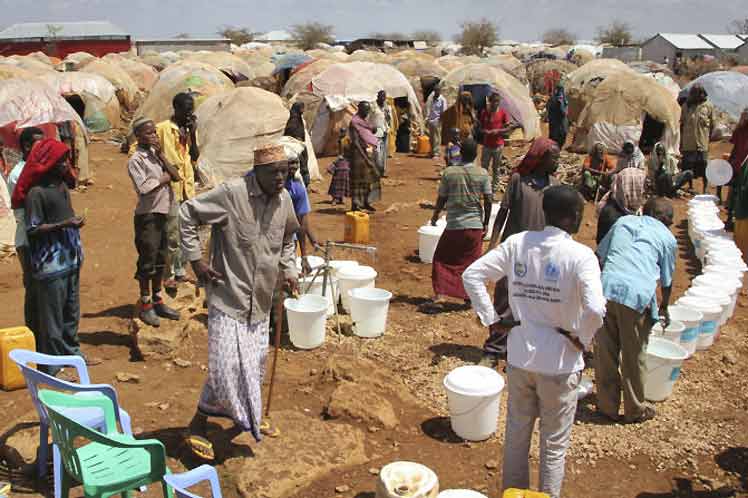After having witnessed the current situation in Madagascar, Beasley said there have been back-to-back droughts in the island which have pushed communities right to the very edge of starvation. Families are suffering and people are already dying from severe hunger, he added. Beasley blamed climate change for the crisis.
The south of Madagascar suffers the worst drought in the last four decades, with more than 1.14 million people in food insecurity situation, of which about 14,000 are already in catastrophic conditions, a situation that will double to 28,000 in October 2021.
The seriousness of this scenario forces thousands of people to leave their homes and walk for hours to get some food, while others fall back on extreme measures to survive such as looking for wild food, said Beasley.
WFP´s data show that global acute malnutrition in children under five years of age in Madagascar nearly doubled (16.5%) over the last four months.
Among the most hit is the district of Ambovombe, reaching out 27%, so many children are currently facing up a hard situation of danger to their lives.
‘We cannot turn our backs on the people who live in Madagascar, while drought endangers thousands of innocent lives. It´s time to act and go on supporting the Malagasy government to contain the effects of climate change and save lives,’ said Beasley.
WFP has been working in Madagascar since the end of 2020 in order to tackle down on extreme hunger; however, as the crisis worsens those efforts must increase, he stressed.
ef/pll/msm/crc










